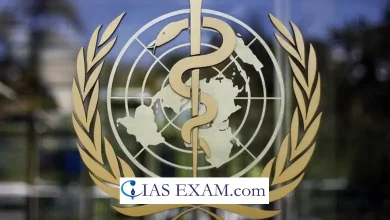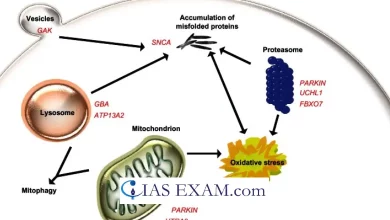Cannabis and Antibiotic Resistance: A Promising Solution
GS Paper 3 - Awareness in the field of Science & Tech

Context – To combat the menace of growing antibiotic resistance, scientists at CSIR-Indian Institute of Integrative Medicine (IIIM), Jammu, have made a groundbreaking discovery. They found that phytocannabinoids, compounds found in the cannabis plant, possess previously untapped antibiotic properties.
The Intersection of cannabis and antibiotic resistance has recently emerged as a topic of considerable scientific interest. As the global community grapples with the escalating challenge of antibiotic-resistance bacteria, researchers are exploring unconventional avenues for potential solutions. Cannabis, often associated with recreational and medicinal use, is now being investigated for its potential role in combating antibiotic resistance.
Understanding India’s AMR Challenge
- AMR occurs when bacteria, viruses, fungi, and parasites no longer respond to antibiotics, leading to increased disease risk and treatment complications. In 2019, India reported 2.97 lakh deaths attributed to AMR and 10.42 lakh linked to AMR-related factors.
- Overuse of antibiotics, misuse in animal husbandry, and inadequate waste disposal practices are exacerbating AMR, potentially making India the “AMR capital of the world.”
- Antibiotic resistance poses a grave threat to global public health, rendering once-effective antibiotics ineffective against bacterial infections.
- The misuse and overuse of antibiotics in both human and animal health have accelerated the development of resistant strains, leaving medical practitioners with limited treatment options.
- The World Health Organization (WHO) has declared antibiotic resistance a critical global health issue, emphasizing the urgent need for innovative solutions.
Cannabis Compounds and Antibacterial Properties:
- Cannabis, known for its diverse array of chemical compounds, has been used for centuries for its medicinal properties. Recent research has unveiled the antibacterial potential of certain cannabinoids, the active compounds found in cannabis.
- IIIM researchers explored the antibiotic properties of tetrahydrocannabidiol (THCBD), a semisynthetic phytocannabinoid derived from cannabis.
- THCBD exhibited remarkable efficacy against Methicillin-resistant Staphylococcus aureus (MRSA), a highly resistant strain of bacteria responsible for numerous deaths worldwide.
\The THCBD complemented or showed indifference to common antibiotics like mupirocin, penicillin G, and ciprofloxacin, suggesting potential combinatory treatments.
Overcoming Cannabis Research Challenges
- Despite the encouraging findings, several challenges and considerations must be addressed before cannabis-based treatments for bacterial infections become a mainstream option.
- Regulatory frameworks surrounding cannabis use vary globally, with legal and ethical considerations influencing research and implementation.
- Standardization of cannabis extracts and dosages, as well as rigorous clinical trials, are essential for establishing the safety and efficacy of these treatments.
- Moreover, potential side effects and long-term consequences of cannabis-based interventions need thorough examination.
Public Health Implications and Ethical Considerations
- The integration of cannabis into the arsenal against antibiotic resistance holds profound implications for public health. If further research substantiates the initial findings, cannabis-based treatments could offer a novel approach to combating bacterial infections, especially those caused by resistant strains.
- This could potentially reduce the dependence on conventional antibiotics, slowing down the development of resistance.
- However, public health strategies must balance the benefits with potential risks and address the societal attitudes and perceptions surrounding cannabis use.
- The ethical dimension of utilizing cannabis in the context of antibiotic resistance cannot be overlooked. Striking a balance between the potential benefits and societal concerns surrounding cannabis use is crucial.
- Transparent communication, public education, and responsible regulatory frameworks are essential to navigating the ethical complexities associated with introducing cannabis-based interventions.
- Ethical considerations should encompass issues such as informed consent, patient autonomy, and equitable access to these treatments.
Way Forward
The exploration of cannabis as a potential solution to antibiotic resistance represents a groundbreaking avenue in the quest for novel antimicrobial strategies. The antibacterial properties of cannabinoids, combined with their potential to enhance the efficacy of traditional antibiotics, make cannabis an intriguing candidate for further research. However, the journey from the laboratory to clinical application is fraught with challenges, including regulatory hurdles, standardization issues, and ethical considerations.
SOURCE The Indian Express





.png)



